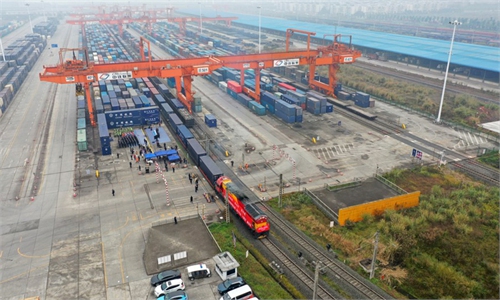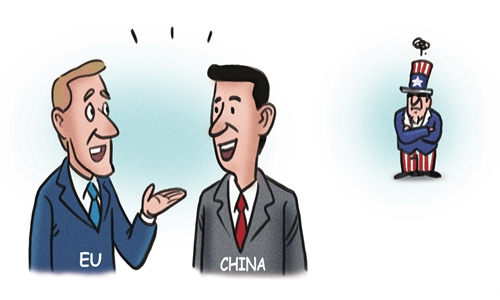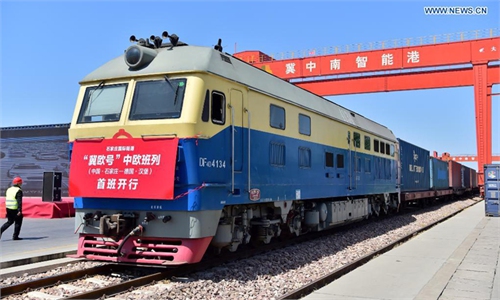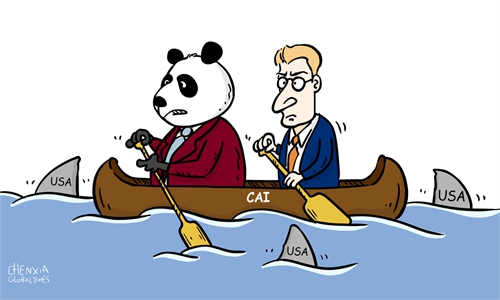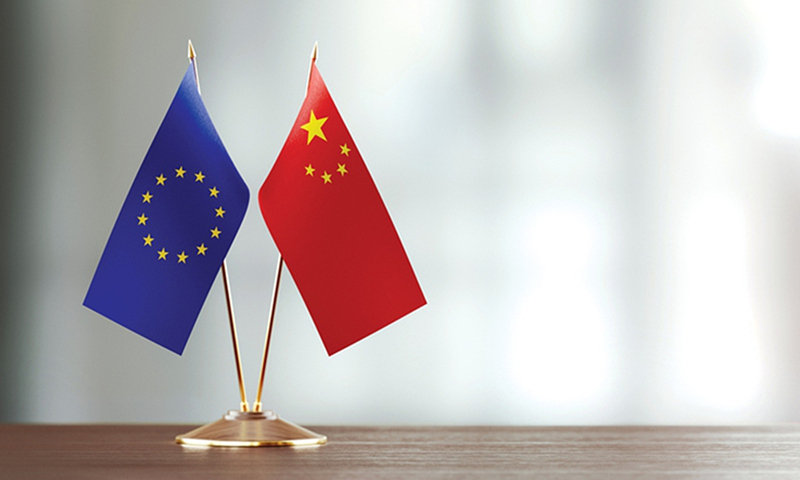
China-EU Photo: VCG
The European Commission, the executive arm of the EU, on Wednesday proposed to prevent non-EU companies that receive government subsidies from investing in or acquiring European companies.
Experts said that although the draft is unlikely to become law shortly, the move, nevertheless, signals the EU's increasingly harsher posturing toward China, which may come at an economic cost during a time of stagnation across Europe.
According to the proposal, if approved by the bloc's members, regulators will be able to block non-EU companies if they are suspected of receiving government subsidies. The proposal cited foreign subsidies "in different forms", such as zero-interest loans and low-price land use.
Although the draft didn't specifically mention China, it shows the EU's shifting stance toward its biggest partner in merchandise trading, Sang Baichuan, director of the Institute of International Business at the University of International Business and Economics, told the Global Times on Thursday.
"There is a subtle change at play in the relationship between China and the EU," Sang said. "It is partly stemming from political wind change in EU and partly because of the sanctions over Xinjiang that both sides are slapping on each other."
"But either way, it doesn't augur well for economic cooperation between China and the EU, including the Comprehensive Agreement on Investment (CAI) signed at the end of last year," Sang said.
Some overseas media reports claim that the EU has "suspended" its efforts to ratify the agreement, although that was swiftly denied on Tuesday by an EU spokesperson.
On Wednesday, German Chancellor Angela Merkel said that the agreement will benefit both the EU and China.
According to Li Gang, an associate professor at the Institute of European Studies under the Chinese Academy of Social Sciences, the recent disruption shows that the EU has been seeking higher "strategic independence" in its economy, especially in its relationship with China.
"The EU is becoming more cautious over intellectual property protection and technology transfers in cooperation with China," Li said. "It is foreseeable that it might impose stricter regulations on areas in which China or other countries can invest, especially in major EU economies such as Germany and France."
On Wednesday, the EU unveiled another plan to reduce its dependence on foreign suppliers, including Chinese ones, in six areas such as raw materials, pharmaceutical ingredients and semiconductors, after it found bottlenecks in the EU's supply chains.
However, given stagnant economic growth in Europe, experts warn that the tougher posturing by EU may come at an economic cost.
"The EU normally should strengthen its trade and cooperation with China, which will benefit the EU's economic recovery after the pandemic, since the Chinese economy is the world's major driving force," Li said, and reducing Chinese investment will mean the loss of job opportunities and impact the economic recovery of the region, especially in countries in Central and Eastern Europe.
